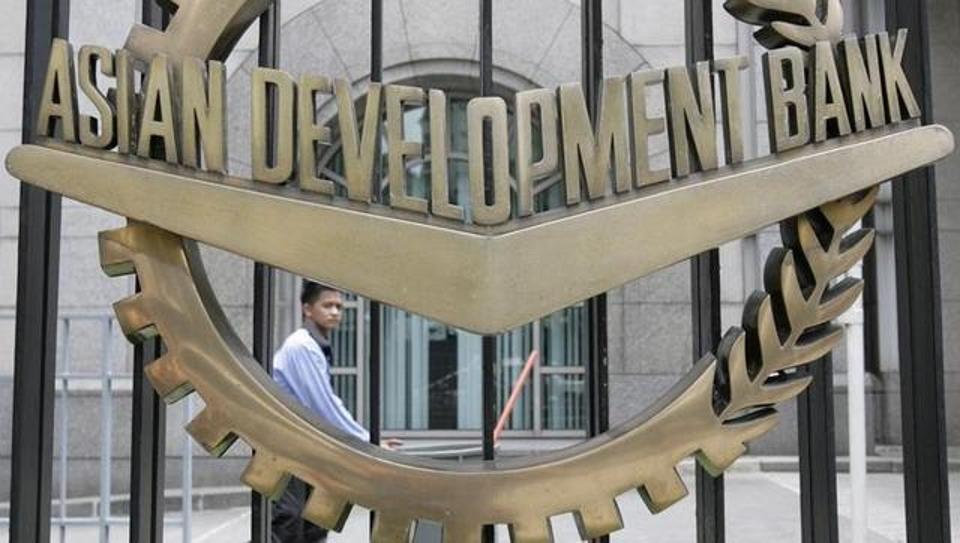Milan:
The Asian Development Bank (AfDB) has expressed concern about the rise in tensions between Pakistan and India, warning that instability in the region could hinder economic growth and have a disproportionate impact to the poor and vulnerable.
“We hope for peaceful resolutions in all regions, because the conflict is finally harming the most vulnerable populations,” said Bad president Masato Kanda, in response to a question from the Pakistani journalist, Aamir Ghauri, during a press briefing at the annual ADB meeting in Milan.
While avoiding direct comments on political conflicts, Kanda stressed that the AfDB remains determined to support the region by economic cooperation.
The declaration comes in the middle of India’s decision to prohibit the importation of goods coming or passing Pakistan, as well as prohibiting Pakistani ships from mooring in its ports. This decision follows a fatal attack on tourists in the disputed region of cashmere, which increased tensions between the two nuclear arms neighbors.
“The BAD supported peace and stability through economic cooperation, and we will continue to do so,” he said.
Responding to a question of the Express PK Press Club on the possibility of a reduced interest rate for Pakistan following its qualification for an International Monetary Program (IMF), he said: “We maintain an independent research team that assesses all the available data. We have a very good relationship with international organizations, but we apply our own analysis.”
Asked about the reduction of growth forecasts for Asia in 2026, Kanda recognized the modest projection of 4.7% growth of the ADB for emerging Asia, attributing the prudent prospects to commercial disturbances and uncertainty in the financial markets. “There may be more impact not only of the commercial decline but also instability in the financial markets. It is not clear at the moment,” he said.
On the larger global challenges, Kanda has described the current environment as perhaps “the most difficult global environment since 1944-1945”, as nationalism and commercial fragmentation increased decades of progress motivated by globalization. He called for the reform of international financial architecture to better serve developing countries, emphasizing the need to “upgrade the regime for the benefit of poor and vulnerable countries”.
From New Delhi, a Mint journalist asked what India and other emerging economies should do to catch up with developed countries by 2050. “Reforms to stimulate domestic demand, reduce inequality and open the economy are essential,” said the BAD president. He stressed the importance of the development of the private sector to stimulate innovation and job creation, while urging governments to invest in high -quality infrastructure and human capital, including vocational training.
On the question of migration and border controls in Western economies, and its effects on funding of funds noted that Kanda noted: “Shipments of funds are sometimes the greatest source of foreign currency for many countries. This has a huge impact on the poor and vulnerable”. He added that, in principle, managed migration can be a “win-win” for global productivity if it is managed correctly, although it remains a politically sensitive problem.
In response to a question of economic time on de-political, the Bad chief said that the US dollar remained dominant due to institutional confidence and liquidity, in particular the federal reserve. “Although its share has dropped slightly in the reserves, the dollar remains resilient,” he said, while urging countries to maintain confidence in their monetary policies and to consider developments in digital currencies.
From Bangladesh, the Financial Express asked questions about strengthening regional trade in Asia. Kanda highlighted the need for commercial harmonization, digitization and modernization of customs to stimulate interregional trade. “This crisis is an opportunity to diversify exports and deepen trade agreements,” he said.
He concluded by reaffirming the ADB’s commitment to the development objectives of South Asia thanks to inclusive growth, cooperation and strategic investment.
$ 26 billion for food security in Asia-Pacific by 2030
The BAD president also announced a large expansion of $ 26 billion in his food security program across Asia and the Pacific, which brought a total planned investment to $ 40 billion by 2030.
When asked why the BAD increases its funding for food at present since more and more countries find greater value for their respective savings thanks to bilateral and private commitments, Kanda said that this decision responded to “one of the most serious problems for the population” – prices of growing food, growing hunger and the risk of job losses. “People are forced to choose between a meal for their families or transport to their work,” he said.
Kanda, who took office as 11th Bad president in February of this year, said the initiative would channel $ 18.5 billion through governments and $ 7.5 billion in the private sector. “Food access is essential in these uncertain times,” said Kanda. “The agricultural and food sector employs 40% of the regional enrollment. Our support will help stimulate job creation and stimulate the growth of agro-industry.”
He also warned that the current food systems of Asia degrade the environment. “Food occupies 70% of global water, 50% of living space and causes 80% of the loss of biodiversity,” he said. “We have to change the way we produce food for a healthy planet – and we can’t wait.”
ADB’s extended support includes digital technology for farmers, soil restoration and a new natural capital fund of $ 150 million to support intelligent climate agriculture.
American prices and Asian savings
The BAD president also discussed the challenges posed by American prices under the Trump administration, urging Asian economies to transform these uncertainties into opportunities. “Asian countries are more exposed to shocks, but they are stronger than in the past,” he said. Kanda highlighted the need for economic policies to “protect stability” and improve “regional connectivity”.




